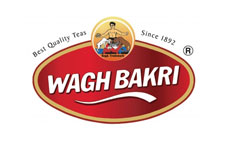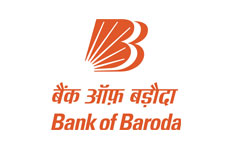Python Programming
ITS offers Python Programming courses like basic python, advance python, python developer, python full stack developer, python frameworks, Python for Machine Learning, Python for Data Science, Python for Data Analysis for all age groups. Courses contents are based on what is really required with 100% hands on and with projects to get confidence about knowing subject in true sense. Python training is delivered by expert trainers team having genuine exposures to different real time python projects. Python training is online live instructor led training or face to face classroom training. ITS assures better experience to learners compared to different video training available online in terms of contents, projects work, practicals and difficulties sessions.
Python Programming Training
38 Hours
Python Django
25 Hours
Python Full Stack Developer
70 Hours
Data Analysis Using Python
70 Hours
Why to learn Python ?
Free to use and can be used
- to develop Web based Application
- to develop Desktop Application
- to develop Scientific and Numeric application
- for Data Analysis and visualization
- to translate binary code like Java
- for Machine Learning
- for Browser Automation
- in Robotics
Python Odoo
27 Hours
Python Certified Associate-PCAP
40 Hours
Python Certification from Microsoft
Exam 98-381
Python Programming
Python Course Outline
Basic Python (20 hrs)
Introduction
- History
- Features
- Setting up path
- Working with Python
- Basic Syntax
- Variable and Data Types
- Operator
Conditional Statements
- If
- If- else
- Nested if-else
Looping
- For
- While
- Nested loops
Control Statements
- Break
- Continue
- Pass
String Manipulation
- Accessing Strings
- Basic Operations
- String slices
- Function and Methods
Lists
- Introduction
- Accessing list
- Operations
- Working with lists
- Function and Methods
Tuple
- Introduction
- Accessing tuples
- Operations
- Working
- Functions and Methods
Dictionaries
- Introduction
- Accessing values in dictionaries
- Working with dictionaries
- Properties
Functions
- Defining a function
- Calling a function
- Types of functions
- Function Arguments
- Anonymous functions
- Global and local variables
Modules
- Importing module
- Math module
- Random module
- Packages
- Composition
Input-Output
- Printing on screen
- Reading data from keyboard
- Opening and closing file
- Reading and writing files
- Functions
Exception Handling
- Exception
- Exception Handling
- Except clause
- Try ? finally clause
- User Defined Exceptions
Advance Python (18 Hrs)
OOPs concept
- Class and object
- Attributes
- Inheritance
- Overloading
- Overriding
- Data hiding
Regular expressions
- Match function
- Search function
- Matching VS Searching
- Modifiers
- Patterns
CGI
- Introduction
- Architecture
- CGI environment variable
- GET and POST methods
- Cookies
- File upload
Database
- Introduction
- Connections
- Executing queries
- Transactions
- Handling error
Networking
- Socket
- Socket Module
- Methods
- Client and server
- Internet modules
Multithreading
- Thread
- Starting a thread
- Threading module
- Synchronizing threads
- Multithreaded Priority Queue
GUI Programming
- Introduction
- Tkinter programming
- Tkinter widgets
Sending email
Python Certified Associate in Python Programming
Exam block #1: Control and Evaluations (25%)
Objectives covered by the block (10 exam items)
- basic concepts: interpreting and the interpreter, compilation and the compiler, language elements, lexis, syntax and semantics, Python keywords, instructions, indenting
- literals: Boolean, integer, floating-point numbers, scientific notation, strings
- operators: unary and binary, priorities and binding
- numeric operators: ** * / % // + –
- bitwise operators: ~ & ^ | << >>
- string operators: * +
- Boolean operators: not and or
- relational operators ( == != > >= < <= ), building complex Boolean expressions
- assignments and shortcut operators
- accuracy of floating-point numbers
- basic input and output: input(), print(), int(), float(), str() functions
- formatting print() output with end= and sep= arguments
- conditional statements: if, if-else, if-elif, if-elif-else
- the pass instruction
- simple lists: constructing vectors, indexing and slicing, the len() function
- simple strings: constructing, assigning, indexing, slicing comparing, immutability
- building loops: while, for, range(), in, iterating through sequences
- expanding loops: while-else, for-else, nesting loops and conditional statements
- controlling loop execution: break, continue
Exam Block #2: Data Aggregates (25%)
Objectives covered by the block (10 exam items)
- strings in detail: ASCII, UNICODE, UTF-8, immutability, escaping using the \ character, quotes and apostrophes inside strings, multiline strings, copying vs. cloning, advanced slicing, string vs. string, string vs. non-string, basic string methods (upper(), lower(), isxxx(), capitalize(), split(), join(), etc.) and functions (len(), chr(), ord()), escape characters
- lists in detail: indexing, slicing, basic methods (append(), insert(), index()) and functions (len(), sorted(), etc.), delinstruction, iterating lists with the for loop, initializing, in and not in operators, list comprehension, copying and cloning
- lists in lists: matrices and cubes
- tuples: indexing, slicing, building, immutability
- tuples vs. lists: similarities and differences, lists inside tuples and tuples inside lists
- dictionaries: building, indexing, adding and removing keys, iterating through dictionaries as well as their keys and values, checking key existence, keys(), items() and values() methods
Exam block #3: Functions and Modules (25%)
Objectives covered by the block (10 exam items)
- defining and invoking your own functions and generators
- return and yield keywords, returning results, the None keyword, recursion
- parameters vs. arguments, positional keyword and mixed argument passing, default parameter values
- converting generator objects into lists using the list() function
- name scopes, name hiding (shadowing), the global keyword
- lambda functions, defining and using
- map(), filter(), reduce(), reversed(), sorted() functions and the sort() method
- the if operator
- import directives, qualifying entities with module names, initializing modules
- writing and using modules, the __name__ variable
- pyc file creation and usage
- constructing and distributing packages, packages vs. directories, the role of the __init__.py file
- hiding module entities
- Python hashbangs, using multiline strings as module documentation
Exam block #4: Classes, Objects, and Exceptions (25%)
Objectives covered by the block (10 exam items)
- defining your own classes, superclasses, subclasses, inheritance, searching for missing class components, creating objects
- class attributes: class variables and instance variables, defining, adding and removing attributes, explicit constructor invocation
- class methods: defining and using, the self parameter meaning and usage
- inheritance and overriding, finding class/object components
- single inheritance vs. multiple inheritance
- name mangling
- invoking methods, passing and using the self argument/parameter
- the __init__ method
- the role of the __str__ method
- introspection: __dict__, __name__, __module__, __bases__ properties, examining class/object structure
- writing and using constructors
- hasattr(), type(), issubclass(), isinstance(), super() functions
- using predefined exceptions and defining your own ones
- the try-except-else-finally block, the raise statement, the except-as variant
- exceptions hierarchy, assigning more than one exception to one except branch
- adding your own exceptions to an existing hierarchy
- assertions
- the anatomy of an exception object
- input/output basics: opening files with the open() function, stream objects, binary vs. text files, newline character translation, reading and writing files, bytearray objects
- read(), readinto(), readline(), write(), close() methods
PCAP: Exam Information
Exam name : PCAP Certified Associate in Python Programming Exam Code/Exam Version: PCAP-31-02
Exam Level: Associate
Prerequisites: None
Duration: 65 minutes (exam) + 10 minutes (Non disclosure Agreement/Tutorial)
Number of Questions: 40
Format: Single-choice and multiple-choice questions
Passing Score: 70% (PCAP-31-02)
Language: English
Full Exam Price: USD 295
Python Django Course
Prerequisites :
- HTML, CSS and Basic Bootstrap
- Core Python with Oop’s
- Core SQL with basic operations
Course Contents
- Django Overview
- Installation in virtualenv
- Django Architecture
- Creating project and apps
- Creating superuser and other commands
- URL Mapping
- Page Redirection
- Django Models – fields, relationships
- Migrations
- Database Configurations
- Admin Interface
- Django Views – Generic and class
- Template System
- Static files
- Form Processing – Form and Model Form
- Admin Customization
- Various Model methods
- Session and Cookies Handling
- Sending Emails
- Signals
- Report Generation using reportlab
Python Odoo Course
Prerequisites:
- HTML, CSS and Basic Bootstrap
- Core Python with Oop’s
- Basic XML and core JS
Course contents
- Odoo overview
- Installation of odoo
- Odoo Architecture
- Database creation
- Building a module
- Views – form, list, graph, calendar, pivot, kanban
- Odoo Actions
- Model relation and inheritance
- Odoo ORM API
- Decorators and constrains
- Wizards
- Demo file and Data file
- Security
- Qweb Template
- Email Template
- Sending Email
- Creating Qweb Reports
- Controllers
- Localization
Python Full Stack Developer
Course contents
- Basic syntax,
- if..else control statements
- loops
- list
- Dictionary
- Tuple
- Database
- Oop for python
Backend Framework
- Flask
Frontend
- HTML,
- Javascript
- jQuery
- Bootstrap Design library
Project
Data Analysis Using Python
Course contents
- Basic syntax,
- if..else control statements
- loops
- list
- Dictionary
- Tuple
- Database
- Oop for python
Data Handling Framework
Pandas (NumPy, Sci-Kit learn)
Data Visualisation
Different types of data representation techniques and interpretation of graphs and how to visualize them using python libraries like seaborn matplotlib plotly
Project
on Handling Visualizing variety of data sets using Python and interpreting them.
Python Certification from Microsoft (98-381)
Course contents
- Perform Operations using Data Types and Operators
- Control Flow with Decisions and Loops
- Perform Input and Output Operations
- Document and Structure Code
- Perform Troubleshooting and Error Handling
- Perform Operations Using Modules and Tools
Exam preparation Note :
Candidate should be able to write and recognize python code correctly without syntactical errors and able to solve given problem before writing certification exam (98-381)


































































